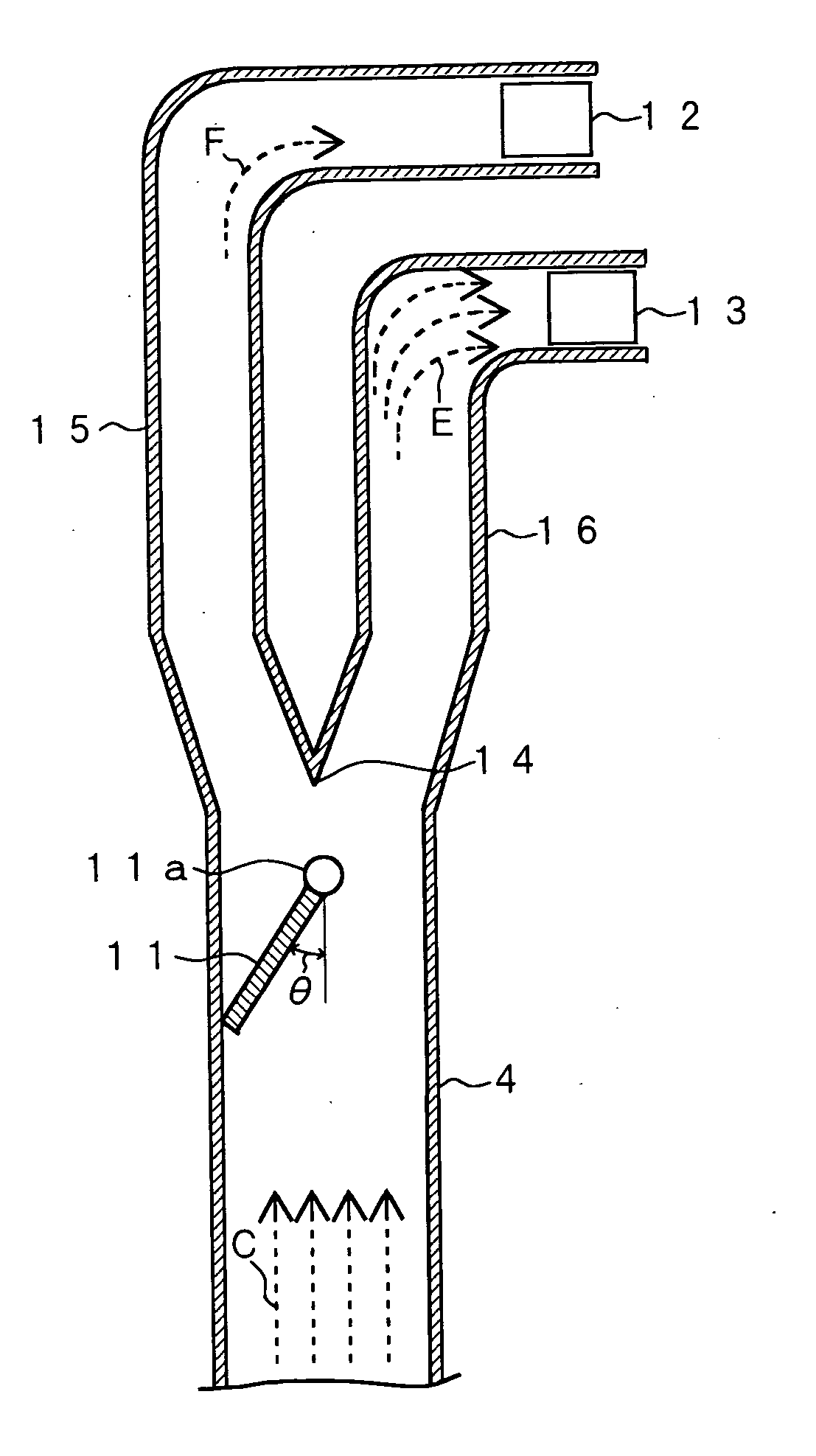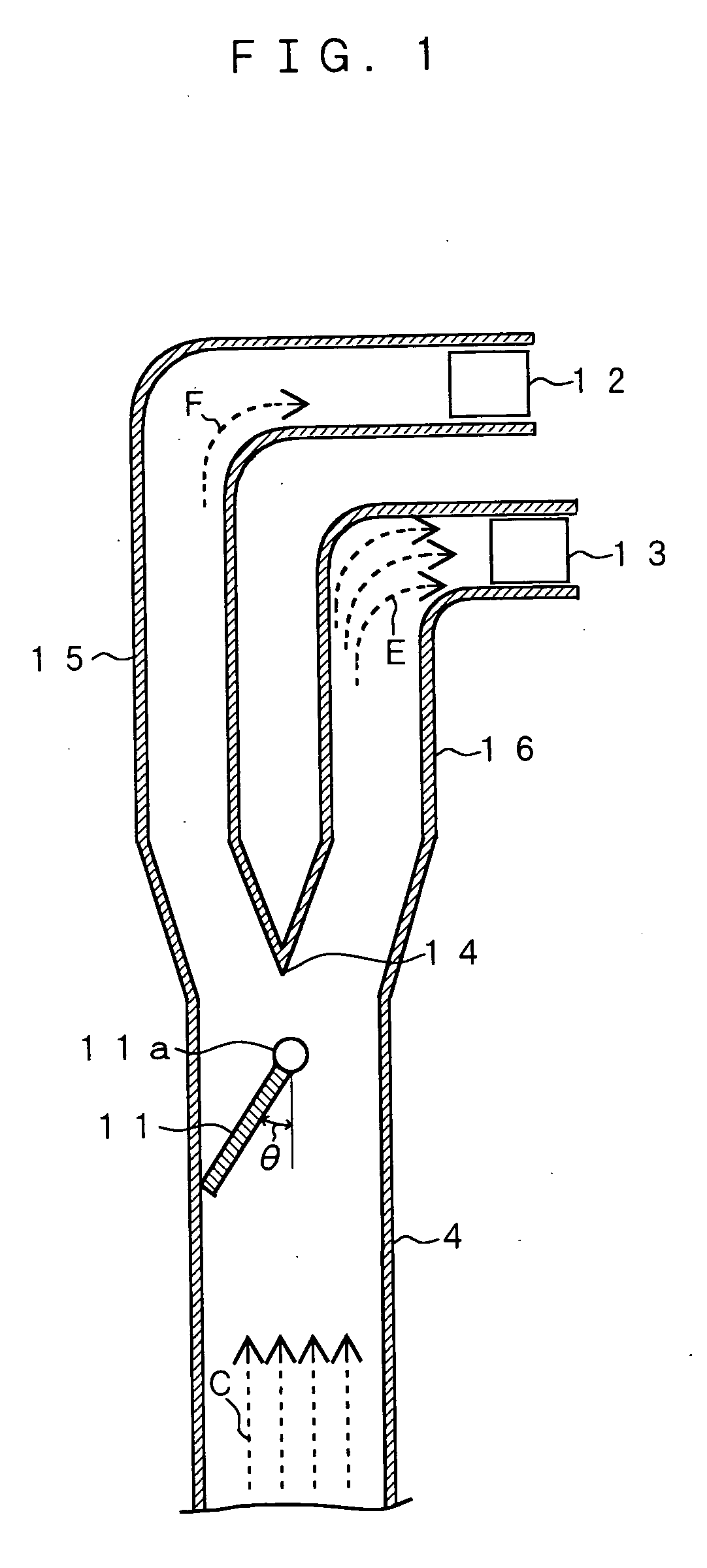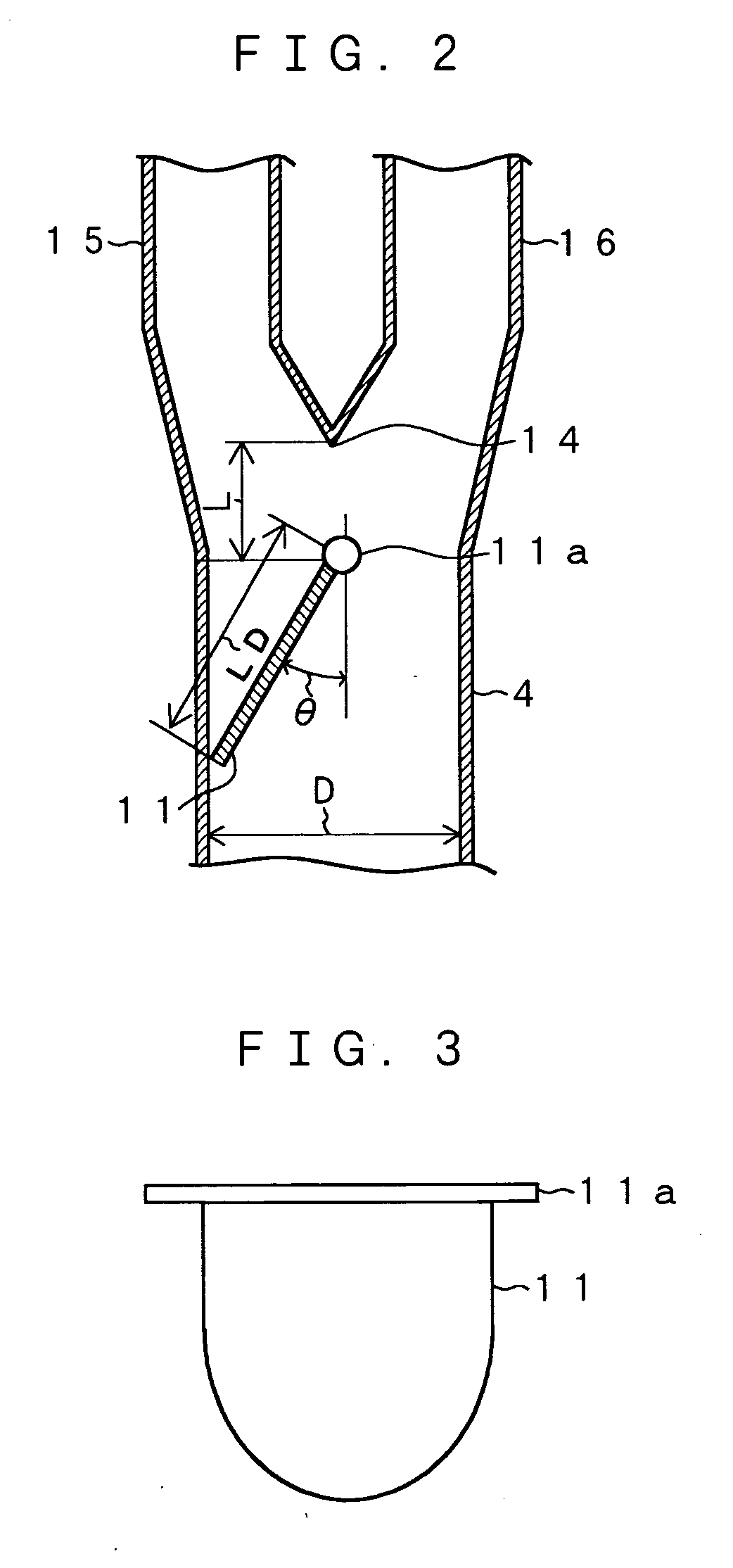Fuel distribution device for fuel feed ducts and method of operating distribution device
a technology of distribution device and fuel feed duct, which is applied in the direction of lighting and heating apparatus, combustion types, and combustion using lump and pulverulent fuel, etc., can solve the problems of low concentration of coal particles in the mixed fluid c that is supplied to burners 5 and can become unstable, and the distribution of coal particle concentration in the fuel supply duct (main duct) 4
- Summary
- Abstract
- Description
- Claims
- Application Information
AI Technical Summary
Benefits of technology
Problems solved by technology
Method used
Image
Examples
first embodiment
[0092] FIG. 1 is a sectional view of the principal parts of the fuel supply duct of this embodiment and FIG. 2 shows the detailed structure around the damper that is installed in the fuel supply duct of FIG. 1.
[0093] The fuel feeding piping of FIG. 1 is comprised of a main duct 4, which extends in the vertical direction, a damper 11, which is installed at an upstream part inside main duct 4 in the vicinity of a duct branching point 14, and branch ducts 15 and 16 that result from the branching and are connected to an upper stage burner 12 and a lower stage burner 13, respectively.
[0094] With damper 11, a damper pivoting axis 11a is disposed in the direction of crossing the main duct 4 in the vicinity of the central part of main duct 4 as shown in FIG. 2.
[0095] As shown in FIG. 2, damper pivoting axis 11a is installed at the upper end part of damper 11 with this embodiment. As shown by the plan view of damper 11 in FIG. 3, damper 11 has a substantially semicircular shape and damper pi...
second embodiment
[0097] FIG. 4 is a longitudinal sectional view of the principal parts of the fuel supply duct of this embodiment, which is a variation of the first embodiment and FIG. 5, is a plan view of the damper of FIG. 4. Damper 11 has a circular shape that is the same as the cross-sectional shape of main duct 4.
[0098] Damper 11 can be held at an appropriate tilt angle .theta. upon rotation of damper pivoting axis 11a in this case as well.
[0099] FIG. 6 shows the relationship between the ratio of concentration of coal towards lower stage burner 13 in the first embodiment and second embodiment and the value of (L1 / LD), which is the ratio of the length (L1) from the upper end of damper 11 to pivoting axis 11a with respect to the maximum width (LD) of the damper. The ratio of concentration of coal towards lower stage burner 13 is the ratio of the coal concentration that is supplied to branch duct 16 at the lower stage burner side with respect to the coal concentration in the mixed fluid in main du...
third embodiment
[0111] FIG. 9 shows an example of a fuel supply duct with a rectangular cross section and having a structure wherein branch ducts 15 and 16, which are connected to and branch out from main duct 4 to upper stage burner 12 and lower stage burner 13, respectively, extend in parallel in the upward direction and are separated from each other in the vicinity of upper and lower stage burners 12 and 13. Damper 11 is provided inside main duct 4 forward where it is branched out to upper stage burner 12 and lower stage burner 13.
[0112] As shown in FIG. 9, damper 11 has an arrangement wherein its pivoting axis 11a is provided at the upstream side of and along a vertical line that passes through branching point 14 and this pivoting axis 11a is provided at the upper end part of damper 11. Since as shown in FIG. 9, damper 11 is tilted towards branch duct 15, which leads towards upper stage burner 12, the concentration of coal particles in the mixed fluid E that is supplied to branch duct 16, which...
PUM
 Login to View More
Login to View More Abstract
Description
Claims
Application Information
 Login to View More
Login to View More - R&D
- Intellectual Property
- Life Sciences
- Materials
- Tech Scout
- Unparalleled Data Quality
- Higher Quality Content
- 60% Fewer Hallucinations
Browse by: Latest US Patents, China's latest patents, Technical Efficacy Thesaurus, Application Domain, Technology Topic, Popular Technical Reports.
© 2025 PatSnap. All rights reserved.Legal|Privacy policy|Modern Slavery Act Transparency Statement|Sitemap|About US| Contact US: help@patsnap.com



